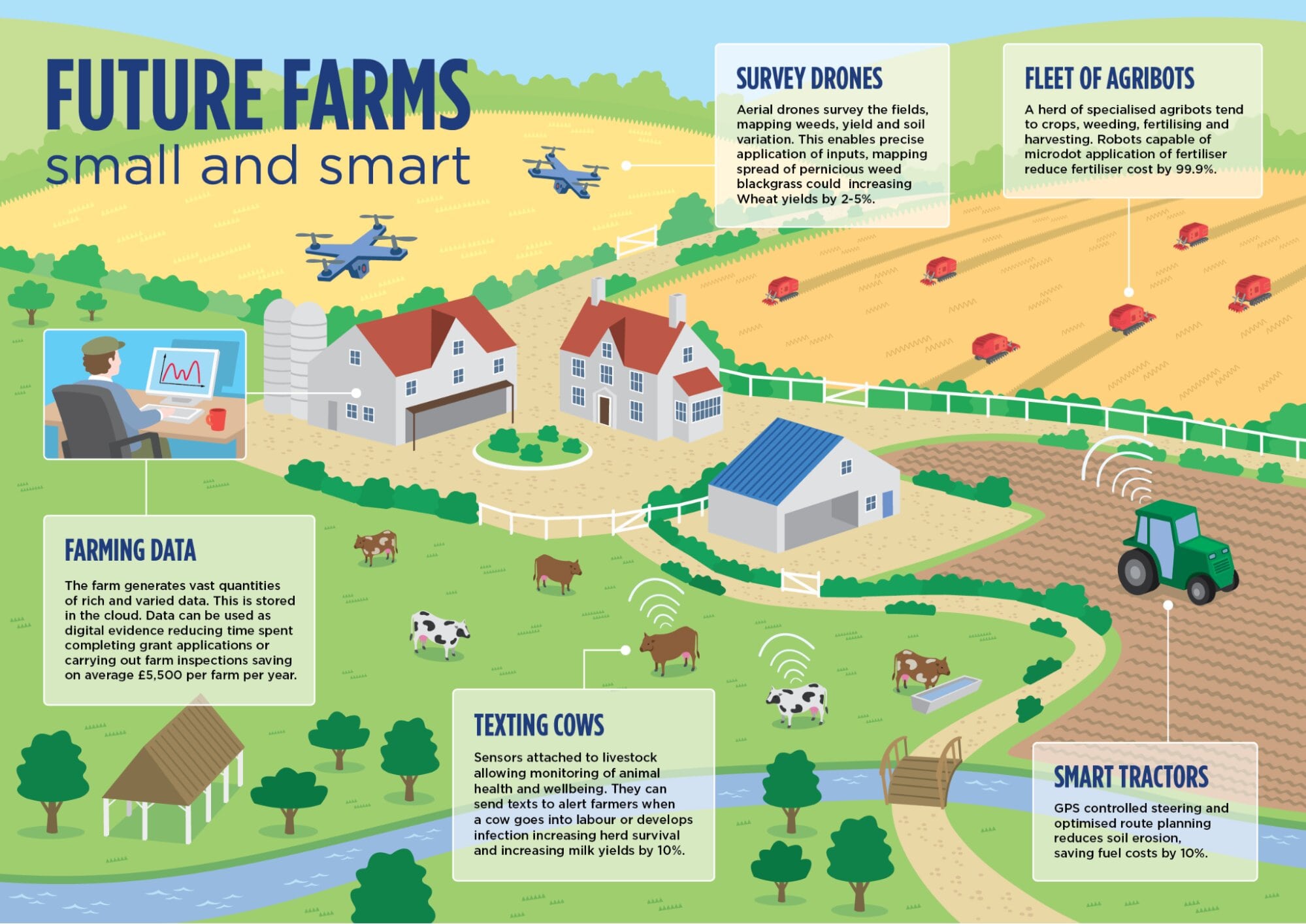Important Notes on Role of technology in Agriculture
Advancements in Agriculture Through Technology
The Indian government has taken various initiatives to adopt technology in agriculture, which was recently highlighted by the Union Minister of Agriculture and Farmers Welfare. A consultation paper on the India Digital Ecosystem of Agriculture was released in 2021, promoting a digital revolution in the agriculture sector. The adoption of technology in agriculture depends on socioeconomic and geographical factors, as well as crop type and irrigation facilities.
The use of technology in agriculture has proven to be beneficial in various aspects, such as the application of herbicide, pesticide, fertilizer, and improved seed. Agricultural biotechnology has enabled farmers to grow crops in areas previously thought to be unsuitable. Genetic engineering, for example, can introduce certain strains into the genes of crops or animals, improving resistance to pests and droughts. Through technology, farmers can streamline processes for improved efficiency and production.
Benefits and Challenges of Technology in Agriculture
Enhancing Agriculture Productivity Through Technology
However, there are also several challenges related to education and training, such as a lack of knowledge and inadequate skills among farmers. Poor infrastructure, including storage and transport, is another challenge, along with economic and policy issues such as limited access to credit and bank loans. Climate and environmental issues, such as poor soils and unreliable rainfall, also pose challenges for farmers.
Additionally, psycho-social issues such as lack of interest in agriculture among workers and time-consuming farm jobs can discourage adoption of technology in agriculture.
Overall, while technology in agriculture can bring many benefits, addressing the various challenges will be crucial for its successful implementation and adoption by farmers.
Steps Taken by the Indian Government to Digitize Agriculture
The Indian government has taken several steps to digitize agriculture, including creating “AgriStack,” a collection of technology-based interventions in agriculture. The Digital Agriculture Mission has also been initiated for 2021-2025, which focuses on projects based on new technologies like AI, blockchain, and GIS. Additionally, the Unified Farmer Service Platform (UFSP) aims to enable seamless interoperability of various public and private IT systems in the agriculture ecosystem across the country. The National e-Governance Plan in Agriculture (NeGP-A) and Sub-Mission on Agricultural Mechanization (SMAM) also provide subsidies for the purchase of agricultural equipment and machinery. Other digital initiatives, such as the Kisan Call Centres, Kisan Suvidha App, Agri Market App, and Soil Health Card (SHC) Portal, have been implemented as well. The use of technology has the potential to lead India to be “Atmanirbhar Bharat” in all respects and be less dependent on extraneous factors.



